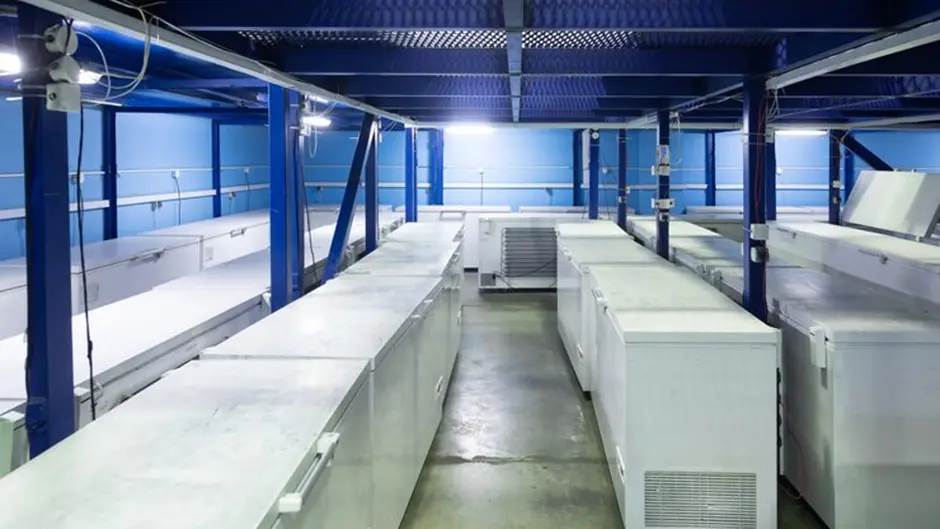5 Reasons Why Choosing the Right Panels Matters for Cool Rooms
Cold room panels are essential for maintaining consistent temperatures and are largely used in the hospitality & food and pharma sector. By choosing the right cool room panels, you can get energy efficiency, temperature control, durability, industry standard compliance, and customisation.
Cool rooms are controlled environments designed to store perishable items at accurate temperature. These rooms, used as a storage unit, extend the shelf-life of medicines and food items by preventing bacterial growth.
And when the right cold room panels are used, it is ensured that there is a rigid foam insulation core squeezed between sheets of the material. These cold room panels, with precise temperature control, preserve the freshness of food products, medicines, and other perishable items.
However, cool rooms are not without a fair share of problems. You may face problems of moisture trapping or lack of insulation. But these can be avoided if you choose the right kind of panels.
Read the blog to know why the selection of the right cold room panels matters.
5 Reasons Why Cool Room Panel Selection Matters
While selecting cold room panels, be it a 50mm sandwich panel or anything else, you need to be careful and observant. The right selection will ensure that there are no problems. Here are 5 reasons why panel selection matters.
Reason 1: Energy Efficiency
Cold room panels are crucial in saving your energy costs. The insulated high-quality panels made of PU or PR foam can reduce heat transfer by forming a thermal barrier.
- PU or PR foam insulation materials have great thermal properties.
- With strong thermal barriers, heat conduction through the wall is prevented, leading to lower energy requirements
- Quality panels with low thermal conductivity resist heat flow and reduce energy needs.
Owing to this, heat transfer is minimised and there is a lower need for energy for the panels to keep the room cold. Select a cold room panel that offers such energy efficiency.
Reason 2: Controlling Temperature and Safety of Products
Temperature control and product safety are essential in a cold room. Storing perishable items requires proper temperature regulations for them to last longer.
For food items:
- Consistent temperature from 4 degree to 60 degree slows bacteria, mould, and yeast growth.
- Low and consistent temperature keeps the perishable items fresh.
For pharmaceutical items:
- Medications that are temperature-sensitized are protected from chemical degradation with consistent temperature.
- Physical characteristics of drugs can change with fluctuating temperature, which is avoided with proper temperature regulation.
- Vaccines need proper temperature storage to be viable and effective.
The right cold room panels with accurate temperature regulation can save perishable food items and sensitive drugs.
Reason 3: Durability
While energy-efficient cold room panels reduce energy expenses, durability lowers maintenance costs. Long-term structural integrity of cold rooms is ensured with durable panels.
- Durable panels minimise the need for frequent replacement by reducing repair needs.
- A rigid foam insulation with sturdy metal offers strength and resistance to pressure.
- Panels that are built for extreme weather help in maintaining longevity.
While durability is cost-effective, it is almost as important for higher efficiency and hassle-free storage of perishable food items and medicines. So, get cool room panels for saving cost and enhancing efficiency.
Reason 4: Compliance with Industry Standards
Industry standards are crucial for properly storing food and medicinal products. Efficient cold room panels are those that adhere to these standards.
- Food Standards Australia New Zealand (FSANZ) includes standards of safety for food items, along with storage specifications for perishable food.
- HACCP in Melbourne requires a food safety management system to control safety hazards.
- The TGA standards require medical supplies to be stored in a cool, dry, and secure environment.
Complying with these standards with the right panel features can reduce the chances of reputational damage, business shutdowns, and fine risks.
Reason 5: Customisation
Cold room panel customisation is essential, as different industries have specific requirements.
- Temperature ranges for frozen food need thicker panels and superior insulation. For fruits and vegetables, the temperature has to be lower, and thinner panels would be sufficient.
- Stainless steel is easy to clean and durable, making it ideal for both pharmaceutical and food storage.
- PIR coded panels are perfect for fire resistance and are needed in facilities with combustible goods.
Flexible panels are perfect for different storage environments. However, note the specific needs of the facilities before looking for the right features for cold room panels.
Panel Specifications by Industry
| Industry | Temperature | Panel thickness | Material |
| Frozen foods | -18 degrees to -25 degree C | 100 to 150 mm PIR panel | Stainless steel |
| Chilled Produce | 0 degree to 5 degree C | 50 mm Sandwich panel | Colorado steel |
| Dairy products | 2 degrees to 6 degree C | 100 mm PIR panel | Stainless steel |
Table: Types of Panels For Different Sectors
Whether you need a 50mm sandwich panel for chilled products or a stainless-steel-based panel for frozen foods, check the industry standards, product reviews, and features before selecting the right cold room panel.
In Summation
Choosing the right cold room panels ensures energy efficiency and temperature control. Take durability and industry standards for perishable food items into account when selecting the panels.
Planning to Get a Cool Room Panel with Best Features?
Explore the range of cold room panel suppliers in Melbourne and select the one offering the right panel suited for your industry standards.
Also Read

